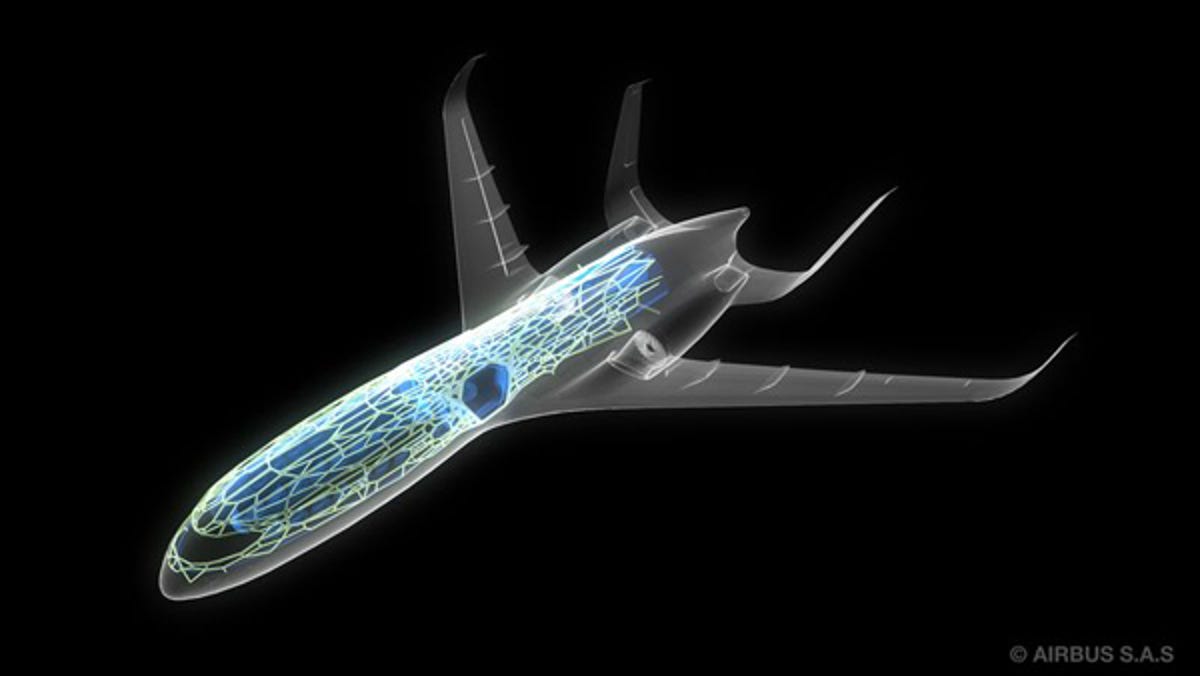Flying high in 2050: plane of the future
Airbus unveiled its concept of what air travel will be like in 2050, with organic self-cleaning materials, virtual reality and panoramic views.

Bird-like
Airbus unveiled its concept of what air travel will be like in 2050, with organic self-cleaning materials, virtual reality and panoramic views.
We don't know if air travel will ever satisfy the more finicky of us, but Airbus' vision of the future definitely adds some interesting elements.
Is this how you see the future of flying? Let us know in the comments.
Airbus said that much of the plane's structure will take cues from the internal make-up of bird's bones, which will not only make the plane stronger, but also lighter and will reduce fuel consumption.
See-through
Taking the sunroof concept to a whole new level, Airbus will enable future passengers to see the twinkling stars in the night sky, fluffy white clouds during the day, but hopefully not bolts of lightning from nearby thunderstorms.
In order for this plane to become a reality, a lot of things will have to change in less than 40 years. Airbus stated that "due to advances in technologies, the concept cabin will be 100 per cent recyclable" and "it will have self-cleaning materials made from sustainable plant fibres, which reduce waste and maintenance", as well as being able to use body heat from passengers to power the cabin's features.
The vitalising zone
The concept plane will remove classes and instead have "zones". There will be three in total: vitalising, smart tech and interaction.
The vitalising zone, seen in the image above, will be at the front of the plane. Like something out of Star Trek or Stargate, the aircraft will be coated with a biopolymer membrane that will control the amount of light that gets into the cabin (as well as temperature) by becoming opaque or transparent on command. Bye-bye windows, hello see-through walls.
The vitalising zone at night
No need for fake twinkling stars on the ceiling of an aircraft to simulate the night sky, as passengers will soon be able to sleep under real stars.
The smart tech zone
Passengers' seats will be able to morph to their needs. This can range from a first-class experience to ... well, an economy class experience. But, of course, Airbus will never actually say that. Instead the manufacturer has said, "By offering different levels of experience within each zone, airlines would be able to achieve price differentials and give more people access to the benefits of air travel with minimal environmental impact."
The interaction zone
A little like the holodeck aboard Star Trek, virtual projections will pop up on demand, showing scenes from golf, baseball, tennis or even shopping trips at your destination.
"Our research shows that passengers of 2050 will expect a seamless travel experience while also caring for the environment," said Charles Champion, Airbus executive vice president engineering.
According to Airbus, of the €2 billion the manufacturer spends on conducting annual research and development for current and future aircraft, 90 per cent of that amount is spent on making its aeroplanes more environmentally friendly.